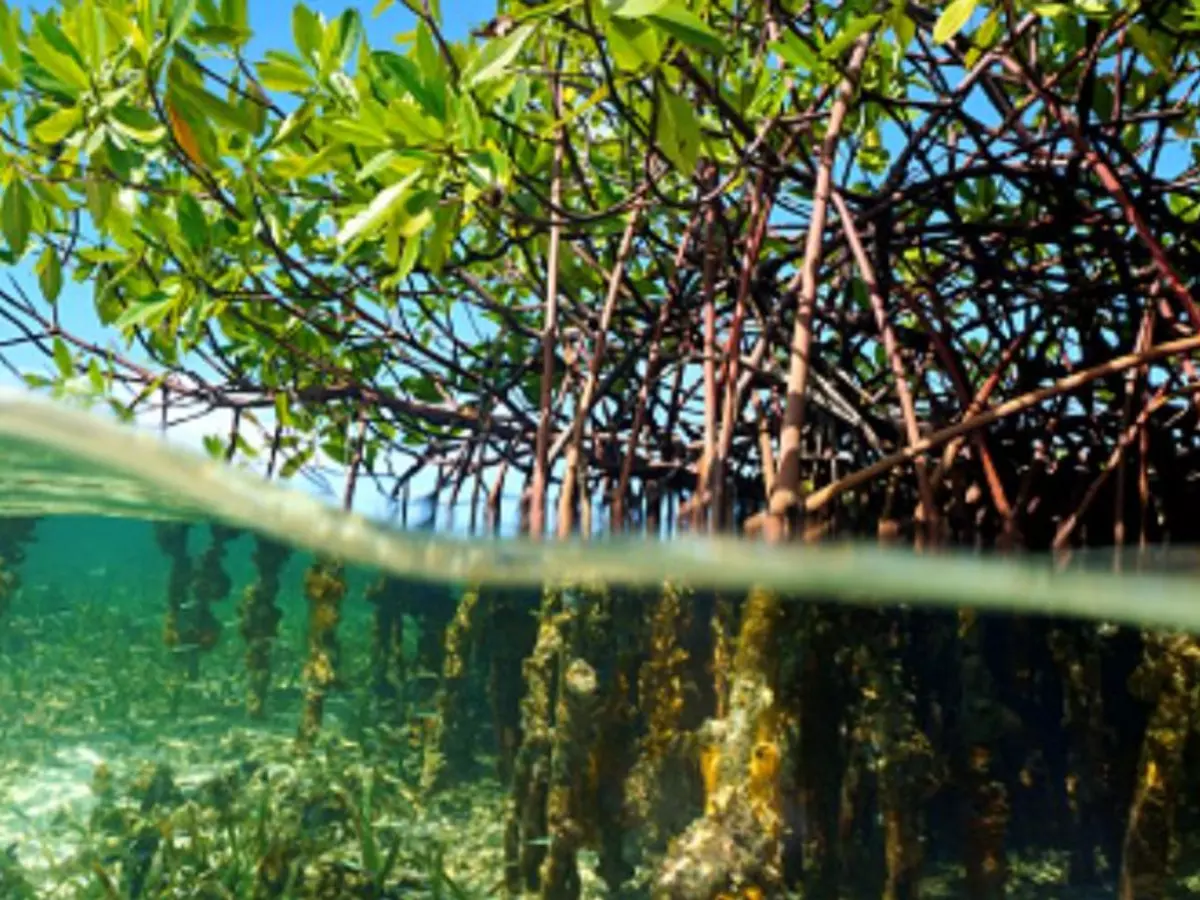Climate Change's Impact On Ocean Water Could Also Affect Mangrove Growth: Study
Researchers have found that changes in surface-ocean density, specifically in the Indo-West Pacific regions -- the hotspot of mangrove diversity -- may have an impact on the dispersal patterns of globally distributed mangrove species.

Climate change has now affected mangrove forests around the world with respect to ocean surface temperatures, salinity and density.
 Unsplash
Unsplash
Also read: Scientists Say Young People Below Age 40 Will See Climate Change Cataclysm
Reported first by ANI, this is according to a novel study conducted by researchers from Vrije Universiteit Brusselí»s Biology Department.
Researchers have found that changes in surface-ocean density, specifically in the Indo-West Pacific regions -- the hotspot of mangrove diversity -- may have an impact on the dispersal patterns of globally distributed mangrove species.
To the unaware, mangroves are intertidal forests that grow along tropical, subtropical and some temperate coasts. They support a variety of ecosystem goods and services and have an important place on the international climate change mitigation and adaptation agenda.
And these forests are often impacted by human activities and subjected to climate-driven changes in the marine, terrestrial and atmospheric processes. Previous studies have looked at the potential impact of sea-level rise, change in precipitation regimes as well as rising temperatures and storm frequency effect on mangrove ecosystems.
However, never before have researchers studied the impact of climate-driven changes in seawater properties on the mangroves.
Researchers made use of present and future sea-surface temperature and salinity data from the Bio-ORACLE database developed at Ghent University while taking sea-surface density estimates from the data with the help of the UNESCO EOS-80 equation of state polynomial for seawater.
Nico Koedam, the co-author of the study, explains, "Our study provides evidence that the density of surface-ocean waters along mangrove forests will decrease by the end of the 21st century, and a factor of two larger in the Indo-West Pacific region than in the Atlantic East Pacific.
VUB professor Bram Vanschoenwinkel added, "It is important to note that our study uses present and future environmental conditions based on monthly averages and that the actual variability in sea-surface density around these mean values could be higher than that predicted in this study."
 Unsplash
Unsplash
Also read: Earth's Oxygen Level Slowly Dropping Say Scientists, Will Vanish After Billions Of Years
Tom Van der Stocken, Marie Sklodowska-Curie Postdoctoral Scholar at Vrije Universiteit Brussel concluded stating, "There is still uncertainty on exactly how the projected changes in seawater density will impact realized mangrove dispersal in different parts of the world and more research is needed regarding the biological response of mangroves to climate-driven changes in surface-water properties.í▒
í░In this study, we took advantage of marine data layers to fill this gap, and we hope that our study will help to inspire new research that will quantify the effects of changes in the properties of the ocean surface on propagule floating periods, dispersal, and connectivity."
For more in the world of technology and science, keep reading Indiatimes.com